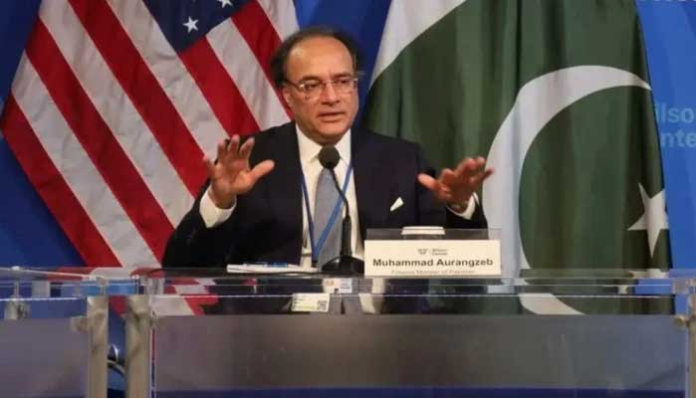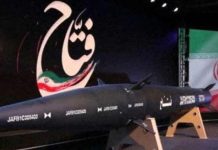WASHINGTON/ ISLAMABAD, JULY 29 (DNA): Finance Minister Muhammad Aurangzeb has left for his second visit to the United States in two weeks to finalise a trade deal with Washington, according to an official statement issued late Monday.
The trip comes after Foreign Minister Ishaq Dar said on Friday that the US and Pakistan were “very close” to a trade deal that could come within days, but comments from the US after Dar met with Secretary of State Marco Rubio mentioned no timeline.
“A final discussion on the Pakistan-US trade dialogue will take place during the visit,” Ministry of Finance said in a statement, adding that a trade agreement will benefit both countries.
Aurangzeb attended a meeting in the PM Office after which he was instructed to depart for Washington to strike a trade deal with the US. The Trump Administration had given a August 1 deadline; otherwise, they would implement a higher tariff against the countries on a reciprocal basis.
Earlier, the finance minister held a meeting with the US Chargé d’Affaires in the federal capital, and it seems that the trade negotiations between the sides have been finalised, and a formal announcement is expected anytime soon after the arrival of Pakistani high-ups in Washington DC.
The question arises if Pakistan grants giant IT platforms tax exemption on tax proceeds recently enacted under the Finance Act, then Islamabad would have to grant the same treatment to Chinese companies as well.
The negotiations, focused on reciprocal tariffs, are part of a broader push to reset economic ties at a time of shifting geopolitical alignments and Islamabad’s efforts to avoid steep US duties on exports.
Pakistan faces a 29% tariff on exports to the US under President Donald Trump’s measures to target countries with large trade surpluses with Washington.
Pakistan’s surplus was around $3 billion in 2024.
To offset the imbalance and ease tariff pressures, Islamabad has offered to import more US goods, including crude oil, and to open up investment opportunities through concessions for US firms in Pakistan’s mining sector.
US-Pakistan relations enjoyed a major boost when Trump hosted Pakistan’s Army Chief Field Marshal Asim Munir at the White House last month for an unprecedented meeting.
Pakistan aims to expand bilateral trade relations into both traditional and non-traditional sectors, the finance ministry said.
There is significant potential for partnerships in key sectors such as information technology, minerals, and agriculture, it added.
Dar, Rubio discuss tariffs, bilateral matters
Pakistan and the United States continued talks on tariffs on Monday, as Islamabad pushes to secure a deal ahead of the August deadline, The News reported on Tuesday.
The discussion marked the second engagement in three days, following Deputy Prime Minister and Foreign Minister Ishaq Dar’s meeting with US Secretary of State Marco Rubio in Washington on July 25.
“Deputy Prime Minister and Foreign Minister Ishaq Dar spoke to the US Secretary of State Marco Rubio on the telephone today,” the Foreign Office said in a statement.
Following up on their productive meeting last Friday in Washington DC, the FO said that they discussed key bilateral matters, including tariffs, as well as regional and global issues of mutual interest.
Pakistan is seeking to expand its bilateral trade ties with the US beyond traditional sectors, aiming to include non-conventional areas such as information technology, minerals, and agriculture. Both sides acknowledge the vast potential for collaboration in these strategic domains.
Aurangzeb’s visit is viewed as a crucial development in the effort to deepen economic engagement and explore new avenues for partnership, with particular focus on enhancing trade flows and fostering long-term investment opportunities.
Elizabeth Horst, US Chargé d’Affaires in Pakistan, called on Finance Minister Aurangzeb at the Finance Division on Monday. The meeting served as an opportunity to exchange views on matters of mutual interest and to reaffirm the positive trajectory of bilateral relations between Pakistan and the US.
The finance minister expressed appreciation for the longstanding support extended by the US towards Pakistan’s economic development. He particularly lauded the continued US support for macroeconomic stability achieved over the past year and a half, and welcomed the healthy momentum in bilateral engagement across various sectors.
Recalling his recent visit to the US, the minister shared insights from his productive meetings with US Secretary of Commerce Howard Lutnick and United States Trade Representative Ambassador Jamieson Greer in Washington, DC. He noted the encouraging progress in deepening trade and economic ties between the two countries.
Senator Aurangzeb underscored the importance of the US as Pakistan’s largest trading partner and highlighted Pakistan’s keen interest in broadening bilateral cooperation beyond traditional sectors. He specifically pointed to the promising potential in information technology, minerals, and agriculture as avenues for mutually beneficial collaboration.
The minister also briefed Horst on Pakistan’s recent macroeconomic indicators, including sovereign rating upgrades and renewed investor confidence. He outlined the government’s reform agenda, focused on critical areas such as taxation and energy, aimed at unlocking sustainable, long-term economic growth. Further, he shared updates on Pakistan’s successful entry into Middle Eastern capital markets, its upcoming plans for issuing the inaugural Panda bond, and future access to Euro and Dollar markets.
Horst welcomed the economic progress and the government’s reform-driven approach, emphasising the US commitment to strengthening economic and trade ties with Pakistan. She reiterated US support for continued economic and political stability in Pakistan and expressed optimism for an enduring and robust business partnership between the two nations.
The meeting concluded with a mutual commitment to building on the momentum of current engagements to further deepen bilateral cooperation.

















